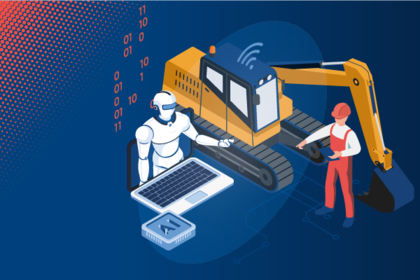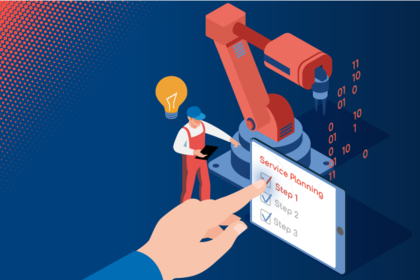Demographic Change - Part 1: Challenges for companies
Demographic change will keep us all busy over the next few years, and there is currently renewed discussion about raising the retirement age. The aging of society and, even more so, the retirement of the baby boomers hold great challenges for companies - one of which is the loss of knowledge due to the number of employees reaching retirement age in the next few years. Software such as content management, service information and spare parts catalog systems are a solution to this problem.
The baby boom began in Germany in the mid-1950s and lasted until the end of the 1960s, with the birth rate peaking in 1964. In that year, according to World Bank figures, the birth rate was 2.54 children per woman in Germany; today, this figure is 1.57 after a low of 1.24 in 1994.
The oldest cohorts of this fifteen-year boom phase are retiring exactly today, and the last will reach retirement age around 2035, with the peak around 2030. Since the baby boom in the U.S. began earlier, right after World War II, and also ended earlier, this topic is already far more present and intensively discussed there. The Wiesbaden-based Federal Institute for Population Research provides figures for Germany: since 2020, one million people per year will retire. The current ratio of 37 pensioners to 100 working people will change to 50 to 100 by 2050 - not only, but also because of the baby boom.
What impact does demographic change have on companies?
This means not only problems for the financing of pensions, but also major challenges for companies. Because these high exit rates mean that a lot of knowledge and experience is leaving companies - and there are also fewer people joining them who could take over their jobs. In the USA, the effect is exacerbated by decades of deindustrialization, because of which fewer and fewer younger people have a sound technical/craft education. In Germany, there has been no deindustrialization on a U.S. scale, but the growing proportion of university graduates in younger cohorts is having a similar effect: a shortage of technically trained people, who are indispensable in the service sector.
The generation that is about to retire has experienced far-reaching development in many areas during their working lives: For example, while mechanically controlled systems were the norm in special machine construction in the sixties, pneumatic and hydraulic actuators with increasingly complex controls became widespread in the decades that followed, first analog-electrically, then electronically and finally controlled by computers.
This generation thus had the chance to gradually expand its experience with the new technologies and to grow along with the increasing complexity, so to speak. Although plants are much easier to operate nowadays thanks to intelligent user interfaces, it takes even more understanding and experience to solve problems if something goes wrong. In the past, understanding what was happening was easy because it was mostly physical processes that could be measured and observed. Today, software is almost always involved, which can have a variety of unpredictable side effects.
The challenges in after sales and service are increasing
Today, topics such as Big Data, networking of machines, machine learning, but also sustainability and efficiency of the overall system are also on the agenda of the "simple service technician". It is expected that not individual aspects such as the changing of a motor are considered, but the entire machine, the production line, or the entire production in context, for example, in the case of optimizations and modernizations. This makes service tasks far more complex than before.
Fewer people, less experience, more complex systems and machines, more disciplines involved from mechanics, pneumatics and hydraulics to electromechanics and electronics to computer technology and software - the new generations in service are facing a perfect storm in which several factors reinforce each other.
A point of view that should not be neglected has become apparent in the corona pandemic: Specialists are often deployed in an alarmingly inefficient manner, spending a great deal of time traveling to the plant operator's site to support his team with his knowledge. It is not uncommon for the highly specialized expert to be needed primarily to diagnose damage, while the plant operator's service team handles the repair itself. In the worst case, the specialist is then needed again after the repair has been completed to adjust the machine and set the processes perfectly again.
Remote services and software offer solutions
Many specialists travel around the world for relatively short assignments. When Covid made such travel impossible, it became apparent that remote support was a viable means of bringing expertise to the customer even without travel. A combination of better access to service information to transfer knowledge to the operator and remote service technologies helps save travel time. This allows specialists to support customers instead of spending many days in a car or on a plane.
We offer solutions to store, manage and re-deliver knowledge - anytime and anywhere the information is needed. Read more about this in part 2 of our blog post "Conserving Service Knowledge and Making It Accessible".





